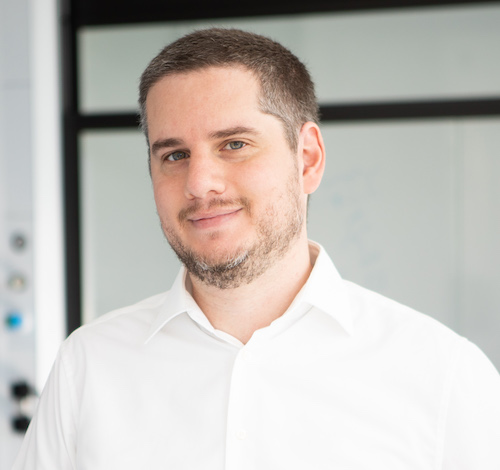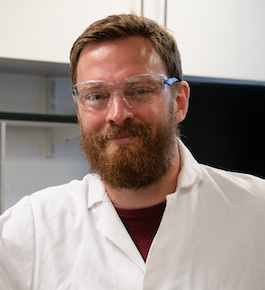When: 14 November, 14:00 – 16:00 GMT
Where: Online
The UK Catalysis Hub held a virtual seminar “Catalysts for Polymer Degradation: Progress and Potential” for early career researchers on Monday the 14th November 2022 to discuss different catalytic solutions to plastic.
The meeting hosted a series of talks in four sessions on solutions from biocatalysts, homogeneous catalysis and heterogeneous catalysis with time for discussions afterwards.
Speakers Include:

Matthew Jones
Catalytic Upgrading of Polymers – is Chemical Recycling the Answer
The talk will look at the pros and cons of chemical recycling and different strategies. It will then go into details of recent examples utilising Zn(II) and Mg(II) for polyester upgrading.
Biography:
Matthew obtained his PhD in 2003 under the supervision of Prof Brian FG Johnson. After a brief sojourn in industry he moved to a Bath in 2004 to undertake a post-doc in the group of Prof Matthew Davidson. He has remained at Bath ever since moving from lecturer to being promoted to full professor in 2019. His group is currently investigating new catalysts for sustainable chemical applications, for example biopolymer formation and polymer degradation. He is currently acting dean for the faculty of science at Bath.
View recording of presentation below:

Bruce Lichtenstein
Engineering enzymes towards a sustainable future
Plastics have revolutionised the way we live, yet the robust material properties that we depend upon have made them recalcitrant environmental pollutants. With most plastics deriving from petroleum feed stocks, and a developing appreciation of their potent negative effects in the environment and to human health, these polymers sit as targets of a global move towards sustainability. To address the needs for circularity in plastic use, we are taking a unified approach towards biological solutions to plastic pollution, with an emphasis on bioinformatics driven discovery of novel enzymes for plastic degradation, their engineering and laboratory evolution, and in the modelling and considerations for next generation plastic-depolymerase pairs. In this presentation, I will discuss recent results in the engineering of non-natural polymer degrading enzymes, highlighting new discoveries driven by enzyme engineering, and with a focus on identifying the properties of enzymes and plastics needed to close the gap between the relatively inexpensive petroleum feedstocks and the polymer breakdown products from enzymes.
Biography:
Dr. Lichtenstein is a Senior Research Fellow at the Centre for Enzyme Innovation (CEI) at the University of Portsmouth. His work spans both protein chemistry and design; with a particular focus on protein engineering for function at interfaces. After graduating from the University of Pennsylvania with a PhD in Biochemistry and Macromolecular Biophysics from the group of Professor Les Dutton, FRS, Dr. Lichtenstein moved to the University of Oxford where he worked with Professor Ben Davis, FRS, before moving to Germany to work with Professor Dr. Birte Hocker at the Max Planck Institute for Developmental Biology and the University of Bayreuth. Dr. Lichtenstein returned to the UK to take up a group leader position within the CEI as the lead protein engineer.
View recording of presentation below:

Erwin Reisner
Synthesis of Fuels and Chemicals from Biomass and Plastic Waste Powered by Sunlight
This presentation will give an overview about our recent progress in developing semiconductor nanoparticle systems and photoelectrochemical devices to convert biomass and plastic waste into sustainable hydrogen and valuable platform chemicals in a process generally known as photoreforming. The principles and design considerations for this solar-driven photo-reforming process will be compared to traditional artificial photosynthetic systems as well as more conventional waste treatment processes and benefits and disadvantages discussed. A review article can be found here: https://rdcu.be/cbuVS
Biography:
Erwin Reisner received his education and professional training at the University of Vienna (PhD 2005), the Massachusetts Institute of Technology (postdoc 2005-7) and the University of Oxford (2008-9). He joined the University of Cambridge as a University Lecturer in the Department of Chemistry in 2010 and as a Fellow of St. John’s College in 2011. He was promoted to Reader in 2015 and his current position of Professor of Energy and Sustainability in 2017. His laboratory explores the interface of chemical biology, synthetic chemistry, materials science, and engineering relevant to the development of solar-driven processes for the sustainable synthesis of fuels and chemicals. He has been coordinating the UK Solar Fuels Network, which organizes the national activities in artificial photosynthesis, from 2017-2021 and is the academic lead (PI) of the UKRI Cambridge Creative Circular Plastics Centre.
This event will be recorded and the recording will be publicly available after the event, with verbal or written contributions from participants included in this recording.
View a recording of the presentation below:




